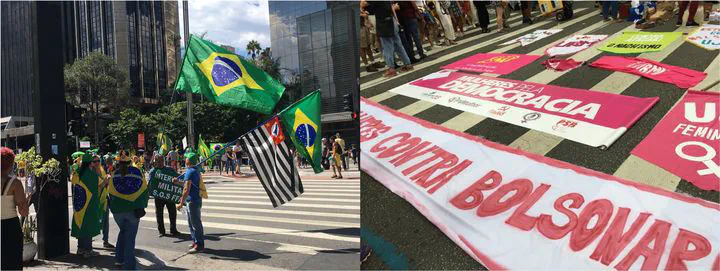Crisis of Democracy?: Targeted Protest and Affective Polarization
 Pro-Bolsonaro (March 15) and Anti-Bolsonaro protests (March 8) on Paulista Avenue in 2020.
Pro-Bolsonaro (March 15) and Anti-Bolsonaro protests (March 8) on Paulista Avenue in 2020.My book manuscript, Crisis of Democracy?: Targeted Protest and Affective Polarization, systematically examines the consequences of protests on the stability of democracy. My central argument is that protests serve as focal events that may reshape voters’ political perceptions. I seek to expand the social identity theory to mass polarization by theorizing and testing how political protests may enhance individual partisan identities. Political protests provide the public with open information containing a specific political message about targeted candidates or parties. Accordingly, exposure to protests may activate pre-existing sympathy or antipathy toward the targeted group at the individual level and ultimately trigger affective polarization. To test this argument, I utilize a range of quantitative analyses, including time-series and cross-national studies and survey analysis with a natural experiment. I also triangulate quantitative methods with qualitative data gathered during my fieldwork in Brazil. The findings have implications for understanding the impact of protests on the polarization process and destabilization of democracy.